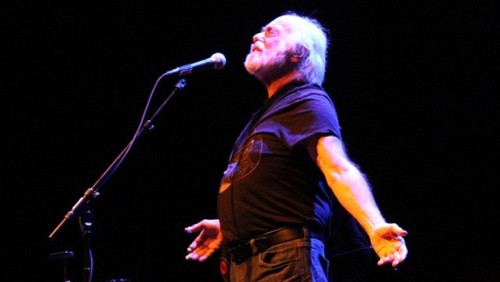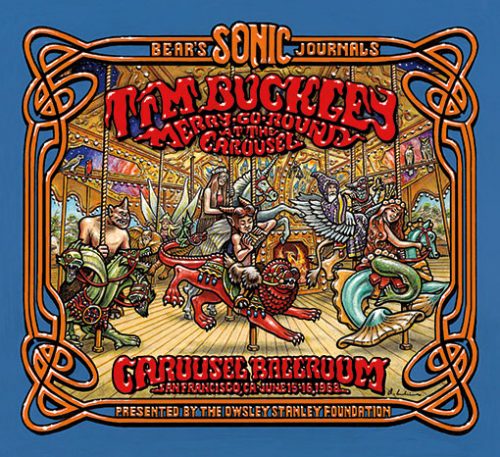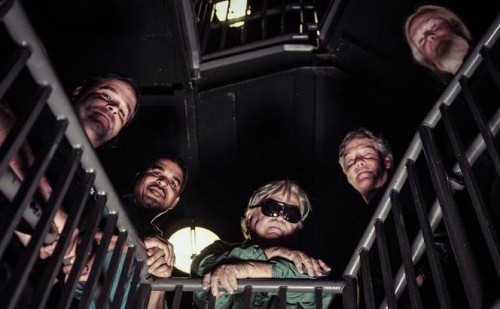By Michael Lello
There are musical partnerships that are so intertwined, you can’t consider one without the other. Lennon and McCartney. Simon and Garfunkel. Elton John and Bernie Taupin.
Jerry Garcia and Robert Hunter are one of these inextricable pairings, with Garcia giving musical life to Hunter’s lyrics, and vice versa. For 30 years, they collaborated on Grateful Dead songs that have become the stuff of legend, from psychedelic trip “Dark Star” to folk ditty “Dire Wolf,” from travelogue “Truckin’” to the anthemic “Touch Of Grey.”
While Hunter’s role in the Dead is apparent to most of the band’s followers, his collaboration with another iconic act is less widely known. Hunter and Bob Dylan’s work first intertwined when Dylan scooped up the Hunter-penned “Silvio” for his 1988 album “Down In The Groove.” After a decades-long hiatus, Dylan tapped Hunter to help write his 2009 album “Together Through Life,” and they co-wrote “Duquesne Whistle” from Dylan’s 2012 record “Tempest.”
“Hunter is an old buddy,” Dylan told Rolling Stone in 2009. “We could probably write a hundred songs together if we thought it was important or the right reasons were there. He’s got a way with words and I do too. We both write a different type of song than what passes today for songwriting.”
In part two of a rare interview, Hunter, 73, opened up to Highway 81 Revisited about his work with Garcia and Dylan, how he approaches writing for different voices — including his own — and why he didn’t pen political songs for the Dead. In part one, he talked about his return to the road, which includes a stop at the F.M. Kirby Center in Wilkes-Barre on Wednesday, July 30.
H81R: What made your writing partnership with Jerry so unique and fruitful?
RH: We both came from the same place musically. We started out as a folk duet and went on to become a bluegrass trio and all kinds of different bands, and I know what songs Jerry liked the best, and I know why he liked them the best. Lines like, I forget the name of the song, but it’s got this line, “Ten thousand were drowned that never were born.” Wow. (Editor’s note: It’s an English folk song called “Nottamun Town.”) It’s got the mystery and a rhythm and a beautiful image. Jerry was a sucker for that sort of thing, not that there was much of that sort of thing around.
I knew what he liked, and it was the same thing I liked, and I think a lot of our songs had that quality in it, like almost an ancient folk touch of some sort. It’s hard to put it into words, but it’s what makes most of our songs unique.
H81R: Your lyrics did not overtly reference current events or things that were linked to a certain time that could be later seen as dated. Was that a conscious effort?
RH: No, I just wrote that way. There’s one song that gives the why to that, and I got busted for it by a fan once. It’s a line in “Mississippi Halfstep Uptown Toodeloo,” which is “The cue ball’s made of Styrofoam and no one’s got the time.” He pointed out that Styrofoam was a very impressive “time” word to use; it was wrong, (it didn’t fit) the general ethos of what Jerry and I were doing. He was very right, and I still feel uncomfortable singing the line and therefore don’t do the song much (laughs).
H81R: Do you write differently for specific voices – Garcia, Dylan, country singer Jim Lauderdale, etc.?
RH: I guess so, because I hear the person’s voice when I’m writing, and also, Jerry didn’t like to do temporal, political stuff, because I think he thought the songs would be moving on into the future, so maybe the particular politics of the ’60s was not terribly germane. I would’ve written more politics into it personally, but Jerry just didn’t want to do that. I dug it; OK, fine.
Jim, I hear a country voice with a North Carolina accent on things, and I do things that are appropriate to the kind of music that Jim does. I try to be as country as I can; I hope I can squeak by – I have spent some time in the country (laughs).
When writing for Dylan, I hear Dylan’s voice. I write words that I can hear coming out of his mouth. Maybe not what he thinks, but things that would sound good with a Dylan voice on them.
 H81R: What about writing for your own voice?
H81R: What about writing for your own voice?
RH: I’m one of those people who can’t really hear his own voice. I never, ever listen to my records, I never play back shows ever, so if people tell me I sang well, then I sang well. If they don’t say anything about it, it was possibly an off night. I can’t stand listening to my own voice. So I don’t really know what it sounds like coming from me. It’s a very wide-open territory when I’m writing songs to sing for myself.
H81R: When you look at your whole body of work, how do you think you’ve changed as a writer during the course of your career?
RH: Oh…Maybe I’m past my salad years. I don’t think that I write better now than I did in my 20s. I haven’t written any “Ripple” lately. But I think I have a pretty consistent standard. That’s the only answer I can give. I don’t know that the kind of artist that I am improves, but I can hold a certain standard, and then it’s up to other people to judge. I don’t know that people are jumping in and accepting what I’ve been putting out over the intervening years the way they did the Grateful Dead material.
So it’s hard to judge. Somebody else would have to judge. Somebody might look at it 50 years from now and say, “Yeah, Hunter was improving, he was writing much better stuff with Jim Lauderdale than he ever wrote for Garcia” (laughs). Who knows? I do the best I can.
H81R: How did your writing relationship with Dylan start?
RH: It started with a song that I had written for the Dead. I used to write up a little book full of songs titled “Can You Dig It?” every year or so, and give copies, and the guys in the band who wrote would choose stuff they liked out of it. Dylan came to the practices for that Dead/Dylan (tour in 1987), and I was in court at the time, so when I got out, Dylan said, “Hey, I set one of your songs,” and he had taken “Silvio” from that book. He said, “I dig your work,” and I said, “Well, I dig your work too.”
We bantered back and forth over the next couple years. I wrote more things, and nothing was really clicking too much. Then out of the blue he asked me to write an album for him (“Together Through Life”), so I got clickin’ on that, and it’s very much a collaboration. His words are in there as much as mine are, to the point where I don’t even remember who wrote what in those songs.
And I just sent something up yesterday that I’m really pleased with that I think is a direction he might like. We’ll see. I don’t like to talk much about things that haven’t happened already.
But it’s a wonderful feeling to write for one of your folk heroes. I think Dylan’s just about everybody’s folk hero. So it feels good to do. And it’s a great privilege to be asked.
H81R: Do you have any other projects in the works right now?
RH: After this, my plan is to sit down and work on guitar for the next tour.
H81R: So there will be more tours?
RH: Oh yeah. God willing and the creek don’t rise.




[…] the road, the importance of bringing songs to life on the stage and his time in the hospital. In part two, he opens up about his relationship with Garcia and […]